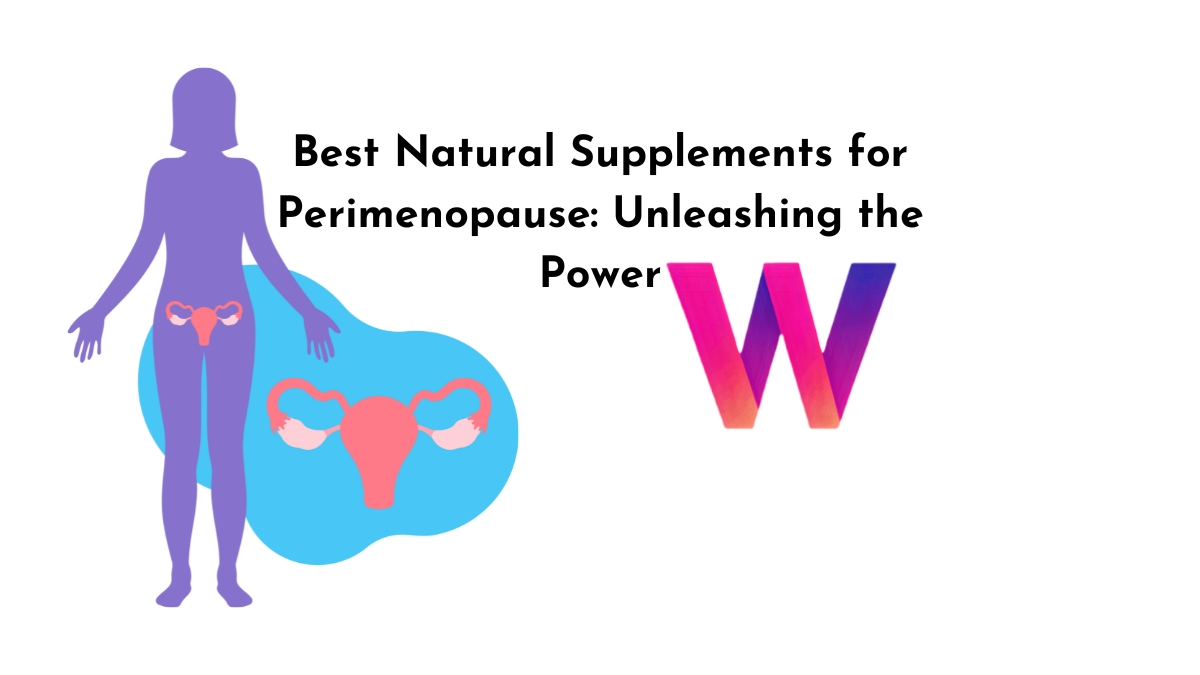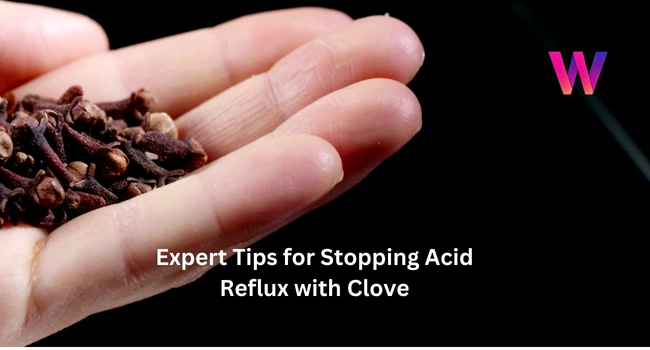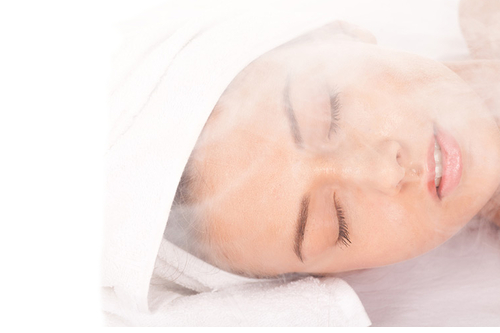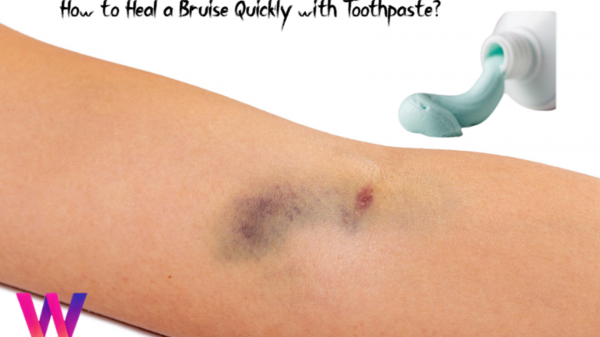Perimenopause is the period before menopause, when your hormones start to change, and your menstrual cycles become irregular. Perimenopause can last anywhere from a few months to several years, and it usually begins in your 40s, but it can start earlier or later for some women.
Perimenopause[1] can cause various symptoms, such as hot flashes, night sweats, mood swings, insomnia, vaginal dryness, low libido, weight gain, and bone loss. These symptoms can affect your quality of life and your health, so it’s important to find ways to manage them.
While hormone replacement therapy (HRT) is the most effective treatment for perimenopause symptoms, it may not be suitable or desirable for everyone. Some women may prefer to use natural supplements to ease their symptoms and support their overall well-being.
Natural supplements are products that contain vitamins, minerals, herbs, or other substances that are derived from natural sources. They are not regulated by the Food and Drug Administration (FDA), so their quality, safety, and effectiveness may vary. Therefore, you should always consult your doctor before taking any natural supplements, especially if you have any medical conditions or allergies, or if you are taking any medications. There are many natural supplements that claim to help with perimenopause symptoms, but not all of them have enough scientific evidence to back up their claims. In this article, we will review some of the best natural supplements for perimenopause based on their potential benefits, side effects, dosage, and customer reviews. We will also provide some tips on how to choose the right natural supplements for your needs and preferences.
Table of Contents
How to Choose Natural Supplements for Perimenopause:
Before we dive into the reviews of the best natural supplements for perimenopause, let’s first look at some of the factors that you should consider when choosing one.
Effectiveness:
The first thing you should look at is the effectiveness of the natural supplement. You want a supplement that can help you with your specific perimenopause symptoms and improve your overall health. To determine the effectiveness of a natural supplement, you should look at the following:
- The ingredients: What are the active ingredients in the supplement? What are their functions and mechanisms of action? How do they affect your hormones and your body? Are they supported by scientific research and clinical trials?
- The dosage: How much of each ingredient does the supplement contain? Is it enough to produce the desired effects? Is it safe and within the recommended limits?
- The form: What is the form of the supplement? Is it a pill, a capsule, a powder, a liquid, or something else? How easy is it to take and absorb? Does it have any additives or fillers that may affect its quality or potency?
Safety:
The second thing you should look at is the safety of the natural supplement. You want a supplement that is safe for your health and does not cause any adverse effects or interactions. To determine the safety of a natural supplement, you should look at the following:
- The side effects: What are the possible side effects of the supplement? How common and severe are they? How can you prevent or minimize them?
- The interactions: What are the possible interactions of the supplement with other medications, supplements, or foods? How serious are they? How can you avoid or manage them?
- The contraindications: What are the conditions or situations that make the supplement unsafe or inappropriate for you? Do you have any allergies or sensitivities to any of the ingredients? Do you have any medical conditions or risk factors that may affect your response to the supplement?
Quality:
The third thing you should look at is the quality of the natural supplement. You want a supplement that is pure, potent, and consistent. To determine the quality of a natural supplement, you should look at the following:
- The source: Where does the supplement come from? Is it organic, non-GMO, vegan, gluten-free, or certified by any third-party organizations?
- The manufacturing: How is the supplement made? Is it tested for purity, potency, and contaminants? Does it follow good manufacturing practices (GMP)?
- The packaging: How is the supplement packaged? Is it sealed, labeled, and stored properly? Does it have an expiration date and a lot number?
Value:
The last thing you should look at is the value of the natural supplement. You want a supplement that is worth your money and meets your expectations. To determine the value of a natural supplement, you should look at the following:
- The price: How much does the supplement cost? Is it affordable and competitive with other similar products?
- The quantity: How much of the supplement do you get per bottle or package? How long will it last you based on your dosage?
The reviews: What do other customers say about the supplement? Are they satisfied with the results, the quality, and the service? Are there any complaints or issues?
Best Natural Supplements for Perimenopause:
Now that we have covered some of the factors that you should consider when choosing natural supplements for perimenopause, let’s look at some of the best options available on the market in 2023. We have selected these products based on their effectiveness, safety, quality, and value. We have also provided some pros and cons for each product to help you make an informed decision.
Best Overall: Phytoestrogens:
Phytoestrogens are plant-based compounds that have estrogen-like effects on the body. They can bind to estrogen receptors and modulate the activity of your own hormones. Some studies suggest that phytoestrogens can help reduce hot flashes, night sweats, mood swings, vaginal dryness, and bone loss in perimenopausal women. They may also lower the risk of heart disease, breast cancer, and osteoporosis.
There are different types of phytoestrogens, such as isoflavones, lignans, coumestans, and flavonoids. They are found in various foods, such as soybeans, flaxseeds, sesame seeds, red clover, alfalfa, hops, and kudzu. You can also take them as supplements in the form of capsules, tablets, powders, or liquids.
The recommended dosage of phytoestrogens varies depending on the type and the product. Generally speaking, you should aim for 40 to 80 milligrams of isoflavones per day or 25 to 50 grams of flaxseeds per day. You should start with a low dose and gradually increase it until you find the optimal level for your symptoms.
Phytoestrogens are generally safe and well-tolerated by most women. However, they may cause some side effects, such as bloating, gas, diarrhea, nausea, headache, or allergic reactions. They may also interact with some medications, such as hormone replacement therapy (HRT), birth control pills, tamoxifen, or anticoagulants. They may also be contraindicated for women who have a history or a high risk of estrogen-sensitive cancers.
Pros:
- Plant-based and natural.
- Mimic the effects of estrogen.
- Reduce hot flashes, night sweats, mood swings, vaginal dryness, and bone loss.
- Lower the risk of heart disease, breast cancer, and osteoporosis.
- Available in various foods and supplements
Cons:
- May cause side effects or allergic reactions.
- May interact with some medications or conditions.
- May not be effective for everyone.
Price: Varies depending on the type and the product
Link: Best Phytoestrogens
Best for Hot Flashes: Black Cohosh:
Black cohosh is an herb that is native to North America. It has been used for centuries by Native Americans and Europeans to treat various women’s health issues, such as menstrual cramps, PMS, and menopause symptoms. Black cohosh contains phytochemicals that may have estrogen-like effects on the body or influence the production of serotonin, a neurotransmitter that regulates mood and body temperature.
Some studies suggest that black cohosh can help reduce the frequency and severity of hot flashes, night sweats, and mood swings in perimenopausal women. It may also improve sleep quality, vaginal dryness, and sexual function. However, other studies have found no significant benefits of black cohosh for perimenopause symptoms. More research is needed to confirm the effectiveness and safety of black cohosh.
Black cohosh is available as a dietary supplement in the form of capsules, tablets, liquid extracts, or tea. The recommended dosage of black cohosh varies depending on the product and the symptom. Generally speaking, you should aim for 20 to 80 milligrams of black cohosh extract per day or 1 to 2 grams of dried root per day. You should not take black cohosh for more than six months without consulting your doctor.
Black cohosh is generally safe and well-tolerated by most women. However, it may cause some side effects, such as stomach upset, headache, rash, or liver damage. It may also interact with some medications, such as HRT, birth control pills, antidepressants, or anticoagulants. It may also be contraindicated for women who have a history or a high risk of breast cancer, liver disease, or blood clots.
Pros:
- Natural and traditional herb
- May have estrogen-like effects or influence serotonin
- May reduce hot flashes, night sweats, mood swings, and other symptoms
- Available in various forms and supplements
Cons:
- May cause side effects or liver damage
- May interact with some medications or conditions
- May not be effective or safe for everyone
- Limited and conflicting evidence
Price: Varies depending on the type and the product
Link: Buy Black Cohosh
Best for Mood Swings: Vitamin B6:
Vitamin B6 is a water-soluble vitamin that is involved in many metabolic processes, such as protein synthesis, neurotransmitter production, and hormone regulation. Vitamin B6 is especially important for the synthesis of serotonin, a neurotransmitter that regulates mood, sleep, appetite, and pain perception.
Some studies suggest that vitamin B6 can help improve mood and reduce depression in perimenopausal women. Vitamin B6 may also help with other perimenopause symptoms, such as fatigue, irritability, memory loss, and cognitive decline. Vitamin B6 may also lower the risk of cardiovascular disease and stroke by lowering homocysteine levels, an amino acid that can damage blood vessels.
Vitamin B6 is found in various foods, such as meat, poultry, fish, eggs, dairy products, nuts, seeds, beans, and whole grains. You can also take it as a supplement in the form of capsules, tablets, or liquid. The recommended dietary allowance (RDA) of vitamin B6 for adult women is 1.3 to 1.5 milligrams per day. However, some experts suggest that perimenopausal women may benefit from higher doses of up to 50 milligrams per day.
Vitamin B6 is generally safe and well-tolerated by most women. However, it may cause some side effects, such as nausea, vomiting, diarrhea, headache, or nerve damage. It may also interact with some medications, such as HRT, birth control pills, antidepressants, or anticonvulsants. It may also be contraindicated for women who have a history or a high risk of kidney stones or nerve disorders.
Pros:
- Essential and natural vitamin
- Involved in serotonin synthesis and hormone regulation
- May improve mood and reduce depression
- May help with other symptoms and lower the risk of cardiovascular disease
- Available in various foods and supplements
Cons:
- May cause side effects or nerve damage
- May interact with some medications or conditions
- May not be effective or safe for everyone
Price: Varies depending on the type and the product
Link: https://amzn.to/43p1ibs
Best for Sleep: Melatonin:
Melatonin is a hormone that is produced by the pineal gland in the brain. It regulates the circadian rhythm, the natural cycle of sleep and wakefulness. Melatonin levels rise at night and fall during the day, signaling the body when it is time to sleep or wake up.
Perimenopause can disrupt the production and secretion of melatonin, leading to insomnia, difficulty falling asleep, or frequent awakenings. This can affect your mood, energy, concentration, and overall health. Some studies suggest that melatonin can help improve sleep quality and duration in perimenopausal women. Melatonin may also help with other perimenopause symptoms, such as hot flashes, mood swings, and bone loss.
Melatonin is available as a dietary supplement in the form of capsules, tablets, gummies, or liquid. The dosage of melatonin varies depending on the product and the symptom. Generally speaking, you should start with a low dose of 0.5 to 1 milligram per night and gradually increase it until you find the optimal level for your sleep. You should take melatonin 30 to 60 minutes before bedtime.
Melatonin is generally safe and well-tolerated by most women. However, it may cause some side effects, such as drowsiness, headache, dizziness, or vivid dreams. It may also interact with some medications, such as HRT, birth control pills, antidepressants, or blood pressure drugs. It may also be contraindicated for women who have a history or a high risk of autoimmune diseases, bleeding disorders, or seizures.
Pros:
- Natural and essential hormone
- Regulates the circadian rhythm and sleep-wake cycle
- May improve sleep quality and duration
- May help with other symptoms and lower the risk of osteoporosis
- Available in various forms and supplements
Cons:
- May cause side effects or vivid dreams
- May interact with some medications or conditions
- May not be effective or safe for everyone
Price: Varies depending on the type and the product
Link: Melatonin
Best for Vaginal Dryness: Omega-3 Fatty Acids:
Omega-3 fatty acids are essential polyunsaturated fats that have anti-inflammatory, antioxidant, and neuroprotective effects. They are important for the health of your heart, brain, eyes, skin, and joints. They may also help with perimenopause symptoms, such as vaginal dryness, low libido, mood swings, and cognitive decline.
Some studies suggest that omega-3 fatty acids can help improve vaginal lubrication and elasticity by increasing blood flow and reducing inflammation in the vaginal tissues. Omega-3 fatty acids may also help balance hormones, boost serotonin levels, and enhance memory and concentration in perimenopausal women.
Omega-3 fatty acids are found in various foods, such as fatty fish (salmon, tuna, mackerel, sardines), flaxseeds, chia seeds, walnuts, soybeans, and algae. You can also take them as a supplement in the form of capsules, softgels, or liquid. The recommended intake of omega-3 fatty acids for adult women is 1.1 grams per day. However, some experts suggest that perimenopausal women may benefit from higher doses of up to 3 grams per day.
Omega-3 fatty acids are generally safe and well-tolerated by most women. However, they may cause some side effects, such as fishy burps, nausea, diarrhea, or bleeding. They may also interact with some medications, such as HRT, birth control pills, anticoagulants, or anti-inflammatory drugs. They may also be contraindicated for women who have a history or a high risk of bleeding disorders or fish allergies.
Pros:
- Essential and natural fats
- Have anti-inflammatory, antioxidant, and neuroprotective effects
- May improve vaginal lubrication and elasticity
- May help with other symptoms and lower the risk of cardiovascular disease and dementia
- Available in various foods and supplements
Cons:
- May cause side effects or bleeding
- May interact with some medications or conditions
- May not be effective or safe for everyone
Price: Varies depending on the type and the product
Link: TRY Omega 3
How to Take Natural Supplements for Perimenopause?
It is important to talk to your doctor before taking any natural supplements, especially if you are taking other medications. Your doctor can help you determine which supplements are right for you and how much to take.
It is also important to start with a low dose of any supplement and gradually increase the dose as needed. This will help to reduce the risk of side effects.
FAQs:
1. What are natural supplements and how do they work?
Natural supplements, also known as dietary supplements, are products made from natural ingredients like herbs, vitamins, minerals, or other botanicals. They are taken orally in the form of capsules, tablets, or extracts. Natural supplements work by providing additional nutrients that may be lacking in the diet, supporting specific bodily functions, and promoting overall wellness. These supplements are commonly used to manage various health concerns, including perimenopause symptoms.
2. What natural supplements are commonly used for managing perimenopause symptoms?
Some commonly used natural supplements for managing perimenopause symptoms include black cohosh, ginseng, red clover, evening primrose oil, and omega-3 fatty acids. These herbal supplements are believed to help alleviate symptoms such as hot flashes, night sweats, mood swings, and sleep disturbances. However, it’s important to note that individual responses to natural supplements may vary, and it’s advisable to consult with a healthcare professional before starting any new supplement regimen for perimenopause.
3. Are natural supplements safe to use during perimenopause?
Natural supplements can be safe to use during perimenopause, but it’s important to exercise caution and consult with a healthcare provider. While natural supplements are generally considered safe, they can have potential side effects, interact with medications or certain health conditions, or be contraindicated in specific populations. It is recommended to choose reputable brands and look for third-party testing certifications to ensure the quality and purity of natural supplements. By seeking professional advice, you can determine the most appropriate and safe natural supplement regimen for perimenopause management.
4. Can Natural Supplements Help with Menopausal Symptoms?
Yes, natural supplements can be beneficial in easing menopausal symptoms for some women. Black cohosh, red clover, and evening primrose oil have shown promise in relieving hot flashes, mood swings, and sleep disturbances. However, it’s crucial to consult a healthcare professional before starting any supplements to ensure safety and suitability. It’s also important to incorporate these supplements as part of a holistic approach that includes lifestyle changes and other treatments.
5. Are Natural Supplements Regulated by the FDA?
While the FDA does regulate natural supplements, the regulations are not as stringent as those for pharmaceutical drugs. Unlike drugs, natural supplements do not require FDA approval before they can be sold. However, the FDA can take action if a supplement is found to be unsafe or mislabeled. It’s crucial to research and choose reputable brands when purchasing natural supplements.
Conclusion:
Perimenopause is a natural and inevitable phase of life that can bring various symptoms and challenges. While there is no one-size-fits-all solution for perimenopause, natural supplements may offer some relief and support for your health and well-being. However, not all natural supplements are equally effective, safe, or suitable for everyone. Therefore, you should always do your research, consult your doctor, and follow the directions before taking any natural supplements for perimenopause. Remember that natural supplements are not a substitute for a healthy lifestyle, a balanced diet, and regular exercise. By taking care of yourself and your body, you can make the most of this transition and embrace the next stage of your life.











